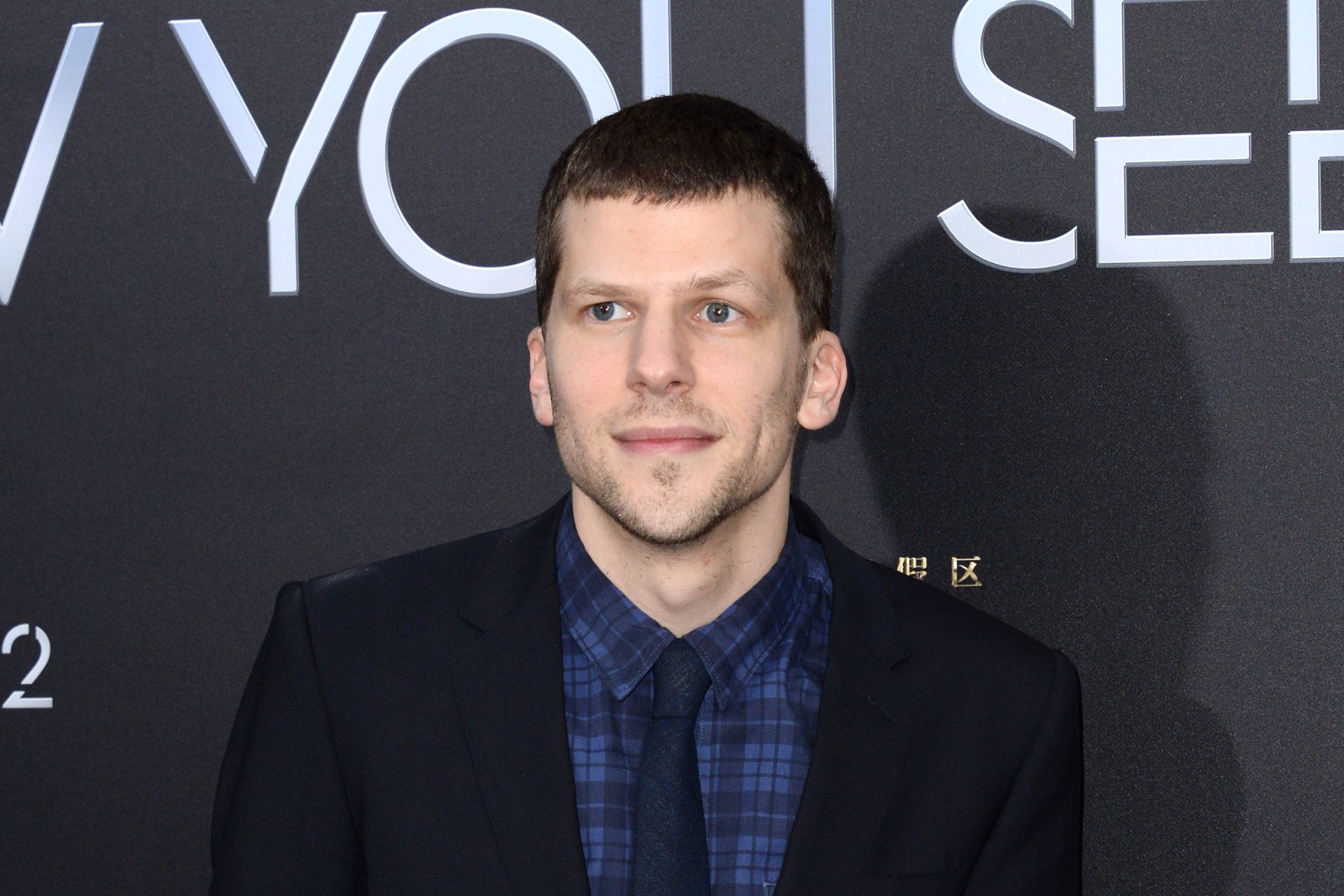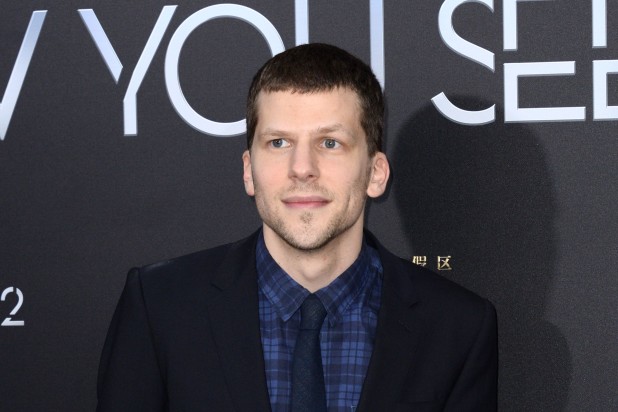Andrew Anglin
Daily Stormer
June 23, 2016
It’s always great to hear about Jews being afraid of things.
What the Jew Eisenberg voices here is a bit more than the standard assimilation fear, and really gives you a view into the psychotic neurosis – as well as the fundamental survival strategies – of the Jew hive-mind.
The underlying concept here, never directly stated: he fears that the Jew hive-mind has been corrupted by integration with the goyim.
And I have to concur.
VOX:
Ezra Klein: You talked a lot about Jewish humor, and I read a great interview you did with Tablet about this. And you said something — I’m Jewish and have read a lot of fiction in that tradition — and you said: “Jews have a way of both assimilating and separating, and they do it very deftly.”
I wanted to hear you talk about that, because it’s something I’ve thought about a lot but have never been able to define that articulately.
Jesse Eisenberg: I see it happen as acutely as my family and as broadly as reading Philip Roth, or seeing a Woody Allen movie or even a Mel Brooks movie, which may be even more indicative of assimilated humor than Woody Allen.
If it benefits the culture to be seamlessly integrated into the hegemony in America, then they do that. Not in a Machiavellian, selfish way but in a survival way. And then, conversely, if it benefits them to be an exotic outsider, then they do that. I don’t think there’s anything wrong with that kind of code-switching. Everybody in every culture does some version of that, but Jews — based on their history and appearance — have been able to do it very successfully in many different places.
EK: … There has been a real sense of Jews as the “other.” And it seems like there haven’t been very many times where for very long we were able to just become part of the whole.
If you go back to the early 20th century, Italians and Poles and ethnic white folks eventually got assimilated into whiteness. They were considered to be other races, and even today Jews stand more separate than that.
JE: I think that’s probably by choice. At the turn of the century my family had a dry goods store in southeast Poland, and according to my aunt — who is 104 — they were totally, seamlessly integrated in this town, and it wasn’t until the war broke out that the Poles turned against them. …
I think the Jews, in terms of keeping one foot outside the door — and I’ve thought about that a lot in terms of myself — I think they do that for survival in America. That’s paradoxical in a way: Why wouldn’t they want to fully assimilate into white American culture?
And I have a feeling, and it’s this: When Jews were hungry in America they accomplished a lot, and now there’s a kind of relaxed quality — that if we relax too much and assimilate too much, either something bad will happen, which has historically occurred, or we’re not going to accomplish that much. Because we’re going to have our nice apartment, and that’s it. And we’ll stop.
And one of the things my play is about in London is my character is a third-generation Jewish American, the son of a dentist. And his roommate is a Nepalese immigrant who came to the country six months ago and is studying business at NYU and is a real upstart and ambitious. And my character does nothing because he feels like the world owes him, and of course the world owes him nothing. And it’s the juxtaposition of these two roommates that underpins the drama of the play.
What I’m trying to discuss — and it’s something on my mind all the time — is that the guy who comes from Nepal [a character based on a real friend of Eisenberg’s] works harder than I do and deserves more than I do, even though I come from a place of greater privilege than him. Just because I was born on third base doesn’t mean I get to stay there. … That’s what’s on my mind all the time.
As a Jewish person, it feels like I could have assimilated into white hegemonic culture and be totally comfortable and go out to the Hamptons or go golfing or whatever people do. I don’t want to do that because I feel like I will, to quote Woody Allen, “ripen and then rot.”
EK: What are the practices you keep up that keep you from assimilating into that white hegemonic culture?
JE: It’s going to sound crazy, but making myself miserable occasionally. We don’t go to culture clubs or go on vacation. I’m a movie actor; I can certainly afford to take my family on vacation. It’s just not in us to go somewhere slightly warm and sit down for a day; it would never occur to us. It’s not in our blood.
My parents: I want to send them away. My dad is such a hardworking guy who teaches at two universities, who lives in central Jersey and drives to Albany; my mom, who works at a hospital … these are really hardworking, wonderful, bright people in their 60s who deserve a break. I want to give them a vacation as a successful movie actor, but they’d never take it.
And so they buy animals — they have several animals in their house — and I always thought, “This is what people do when their lives become too comfortable and they’re not comfortable with ease: They get an animal.” Because an animal can make your life really difficult if you’re too old to have a child.
They have a parrot that wakes them up at 5 in the morning. Why do they have a parrot at all? They’re animal rights advocates who probably don’t even believe parrots should be domesticated. And yet they have a parrot that wakes them up at 5 in the morning that they have to go feed, and then they feed it and it bites their ear. …
EK: It feels like this idea that when you have enough, you lose this kind of will to succeed, and that you can lose your spiritual core. … But that sounds like what you’re talking about: that you’re afraid if you let off the gas a bit, or if Jews let off the gas a bit, they will fall into a spiritual and productive torpor.
JE: Yes, I feel that’s right. I feel that in a way that’s totally unconscious for me.
And the most glaring example for that is every day I walk to my theater, the most beautiful in the West End, and there’s a big photo of my face and it says it’s a “triumph” and a great play.
All I see when I see that image, which I see every day, is terror. How am I going to make sure tonight’s audience is going to feel the thing it says on the poster? I don’t feel any satisfaction; I don’t feel any glee, or joy, or accomplishment. I feel pure terror. I’m not exaggerating — there’s no false humility, there’s nothing to be humble about this feeling. It’s pure terror: It’s, “How am I going to live up to what I’ve promised they’re going to be paying for?”
And I think, in a macro-anthropological way, I’m thinking that to keep good at it. Because the moment I think, “Oh, it’s a triumph; that’s great; I don’t have to do anything tonight” … the moment I have that feeling is the moment the play is no longer good and the moment the play is no longer probing in a way that lives up to the standard I set for myself. In a way it’s survival, but it’s totally paradoxical — because you’re killing yourself in a way to survive. …
If we’re suddenly let into the golf course, are we going to swing as hard?

